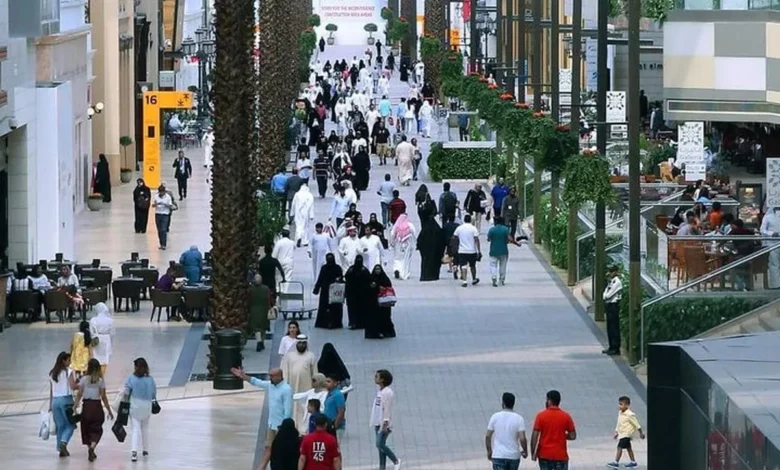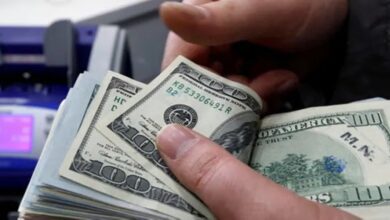Market buoyant over government’s proactive measures

By Reaven D’Souza
Executive Managing Editor
An Amiri decree issued on 25 August expanded the cabinet with the appointment of four new ministers and the reshuffling of some ministerial portfolios to enhance the functioning of government entities.
The expanded ministerial lineup now has three women ministers with Minister of Public Works Dr. Noura Al-Mashaan, and Minister of Social Affairs and Family and Childhood Affairs, Dr. Amthal Al-Huwaila, now being joined by Nora Al-Fassam as new Minister of Finance and Minister of State for Economic and Investment Affairs.
The appointment of Al-Fassam as finance minister makes her only the second female minister to head the finance portfolio since 2005,
Appointment of three women cabinet ministers reflects the leadership’s recognition of the crucial role Kuwaiti women play in driving the nation’s development and progress. Accelerating the pace of development processes, so as to enable Kuwait to realize its full potential, was said to be a catalyst that led to the decision in early May by His Highness the Amir Sheikh Mishal Al-Ahmad Al-Jaber Al-Sabah to suspend parliament for a period of four years.
Since taking office in mid-May, the newly appointed cabinet led by His Highness the Prime Minister Sheikh Ahmad Abdullah Al-Ahmad Al-Sabah, has initiated several proactive measures designed to energize the market and drive the development agenda. Although several much-needed structural and fiscal reforms remain to be enacted, the government has indicated a resolve to implement them at the earliest, given the importance of such reforms to the long-term progress of Kuwait.
The Amiri decision and subsequent proactive measures by the cabinet appears to have had an overall positive impact on the market, with businesses responding favorably to the new political developments. The uptick in economic activities witnessed in various sectors is an indication that the market considers the recent decisive and generally pragmatic measures taken by the government as positive factors that could significantly boost business and economic prospects.
The quarterly economic-insight report published by the National Bank of Kuwait (NBK) for second-quarter of 2024 shows that business confidence is currently at historical highs. Besides the government’s constructive market policies, a potential interest rate cut by the Central Bank of Kuwait (CBK) has fueled optimism, as this could precipitate an increase in demand for goods and services, as well as spur business and consumer credit, boosting economic activity in the months ahead.
Based on latest figures from CBK, consumer spending on cards edged up in the first-half of 2024, rising to 5.9 percent year-on-year. Increased consumer spending is also a sign that the sluggish spending growth seen since 2022 is now abating, and that potentially steadier and higher growth could lie ahead. Moderating inflation picture, with core inflation remaining steady at 3.2 percent for three consecutive months through May, has also invigorated spending, said the NBK report.
Pointing to other factors that buttress market revival, the quarterly report noted that the push to accelerate project activities has contributed to enlivening market sentiment. After a strong showing in 2023, project awards had slid sharply in early 2024, largely due to then prevailing political instability. But the new government in office has made boosting project activity a key plank in its development plan.
Project awardings over the last few months have climbed to reach around KD1 billion through July. If this momentum is sustained, predictions are that 2024 could witness new highs in project-awardings. According to regional construction industry publication MEED Projects, project awards in Kuwait jumped 444 percent in the second-quarter of 2024 to reach KD688 million.
Among the main projects that made it to the awarding phase were infrastructure work in the South Sabah Al-Ahmad City and the Al-Nayeem affordable housing area. The publication also forecast a positive outlook for the second-half of 2024, with around KD6.5 billion worth of potential projects awaiting awarding, including the Az-Zour Independent Water and Power Producer (IWPP) project for Phase 2 and 3 worth KD1.2 billion, and the Al-Khairan IWPP project for KD800 million.
Additionally, other projects on the pipeline for awarding include the Al-Shagaya Renewable Energy Complex project, and the projects by Public Authority for Housing Welfare to expand existing residential cities and develop new ones, as well as the announcement by the Ministry of Public Works that nine tenders will be floated during fiscal year 2024/25 for work on the Mubarak Al-Kabeer Port project,
The report noted that oil GDP is forecast to increase following the June decision by the Organization of Petroleum Exporting Countries and its non-OPEC allies ((OPEC+) to gradually ease the voluntary production cuts by some members. This would allow Kuwait to restore 135,000 barrels per day (b/d) at a gradual rate of 11,000 b/d every month from October 2024 to September 2025,which would raise production output to 2.25 million b/d by the end of 2025.
Non-oil private sector activity in June also witnessed the 17th consecutive month of expansion for local firms, supported by ongoing gains in output and new orders, as well as in employment. While business optimism about the year ahead remains strong, a challenging global economic climate and escalating geopolitical tensions were among factors leading to weaker investor sentiment. This could likely improve if key project activities as well as economic reforms gain momentum.
On 26 August, following their oath-of-office in front of His Highness the Amir, the four newly appointed ministers emphasized their commitment to drive work at their respective ministries to achieve results, and follow the political leadership’s directives to meet citizens’ aspirations. The ministers have several pressing issues and files that await their immediate attention, including accelerating the pace of developmental work and digital transformations, filling leadership posts, and empowering national talents.
As the new minister of finance, Nora Al-Fassem faces several tasks that will require her urgent attention. Among others, she will have to complete the government’s work program, drive economic reforms, finance the budget deficit, reduce spending on discretionary items, increase non-oil revenues, reevaluate pricing of government properties, goods and services, and approve tax reforms.
The minister will also have to follow up on the measures undertaken by her immediate predecessor at the ministry, Dr. Anwar Ali Al-Mudhaf, who pushed for a more prudent medium-term fiscal planning approach. Moreover, Minister Al-Fassem will have to set other objectives to aim for, including diversifying the economy, enhancing non-oil revenues, curbing expenditure by rationalizing spending, and adopting a targeted approach to welfare and subsidy outlays.
With oil continuing to dominate the economy, the lack of income diversification has left Kuwait vulnerable to global oil price fluctuations, and to the gradual global shift to a low-carbon economy. High oil prices in 2024 could provide the financial support to expand the non-oil sector and enact long-awaited economic reforms needed to push the development process forward.
However, market analysts believe that while the government could impose new selective taxes on tobacco and sugary drinks and increase fees on several public services, it is unlikely to enact the value-added-tax (VAT) imposed by other Gulf nations. In the same vein, the passing of a public debt law could be pushed to the next fiscal year (2025/26).
Although financial reforms aimed at reducing the wage bill remain important, it is doubtful to be enacted immediately, with the government instead pressing for increasing employment of nationals in the private sector. Nevertheless, there are hopeful indications that the government is aware of the criticality of transforming the economy from the current rentier model to a more productive one; if not now, then sometime soon.












